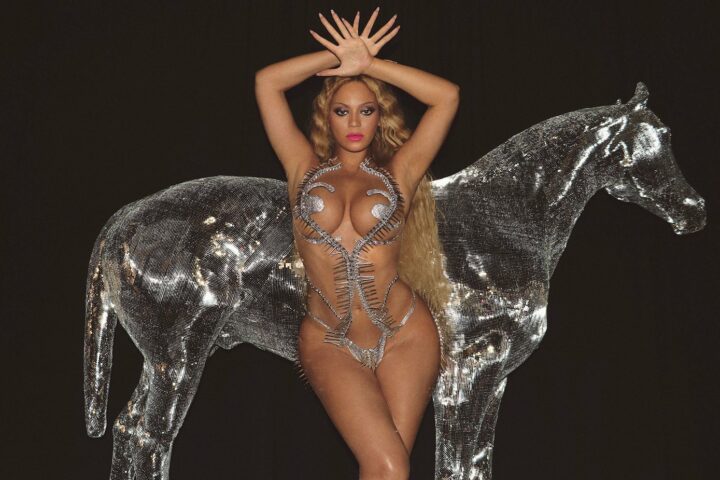Rock revivalism in pop music reached critical levels last year with the release of Olivia Rodrigo’s Sour, but it’s been bubbling up through the work of indie artists like Soccer Mommy, Girl in Red, and King Princess for several years now. Where Rodrigo and Soccer Mommy have rather obvious antecedents, though, King Princess, a.k.a. Mikaela Straus, is less easy to pin down in her sonic lineage. Songs like “Little Bother,” from her second album, Hold On Baby, admittedly evoke the ennui of the Drums and Best Coast, but more often, she attempts to bridge a number of gaps—between digital and analog, pop and rock, slick and intimate—in a way that can feel bland and devoid of context.
To her credit, Straus is much franker in her willingness to delve into personal shortcomings and feelings of inadequacy. Hold On Baby opens with “I Hate Myself, I Want to Party,” a tuneful survey of its narrator’s slovenly or quotidian behavior—drinking alone, watching TV—that culminates in a rush of guitars. The album’s central character spends the following 11 songs struggling to break free of a relationship on its last legs and her tendency toward substance abuse, twin challenges that Straus’s writing compellingly captures as inextricable.
On the affecting, gentle-until-it-isn’t “Crowbar,” Straus compares her partner—and, ostensibly, her drug of choice—to the titular blunt object, which serves as an anchor but also a crutch, over featherweight piano and satisfyingly clacking drums. The equally muscular, unhurried “Change the Locks” also hinges on a metaphor, wherein Straus’s lover is refusing access to her heart and tragically deprogramming herself from the partnership. “I guess it’s over/‘Cuz I’m hardly sober anymore,” she bemoans, pointing to how her propensity for mind and mood alteration has begun to compensate for dissatisfaction in her relationship.
But the melodies on these low-key anthemic songs never quite come to life as convincingly as they should. The closest Hold On Baby gets to a catchy hook is on “For the Friends,” a synth-driven, melancholic jam that reflects fondly on the humble origins of a relationship while making clear the singer’s present-day needs and baggage. Perhaps the album’s lack of earworms wouldn’t matter if Straus weren’t so obviously aiming for pop transcendence.
Similarly, Straus’s bluesy growl on “Too Bad” and the scuzzy vocal treatment on “Cursed” sound strained and artificial. Conversely, the final two songs reach both a level of vocal intimacy—the purest realization of the artist’s blues-lite aspirations. She sounds authoritative on “Sex Shop” while also pulling off a rattling naturalism in her performance on the verses. On “Let Us Die,” during which Straus resolves to incinerate her relationship in order to preserve whatever goodness is left of its participants, the guitars and drums bubble up in the chorus in an emphatic, exciting surge. It’s a punchy, memorable conclusion on an album that might have had greater impact if it didn’t feel so literally and figuratively pre-programmed.
Since 2001, we've brought you uncompromising, candid takes on the world of film, music, television, video games, theater, and more. Independently owned and operated publications like Slant have been hit hard in recent years, but we’re committed to keeping our content free and accessible—meaning no paywalls or fees.
If you like what we do, please consider subscribing to our Patreon or making a donation.







Lack of earworms?? Were you listening to the same album? This is one of the most tunesy album I’ve heard in a while, and it’s totally fab. I think you should refrain from writing music reviews, as you don’t actually know much…